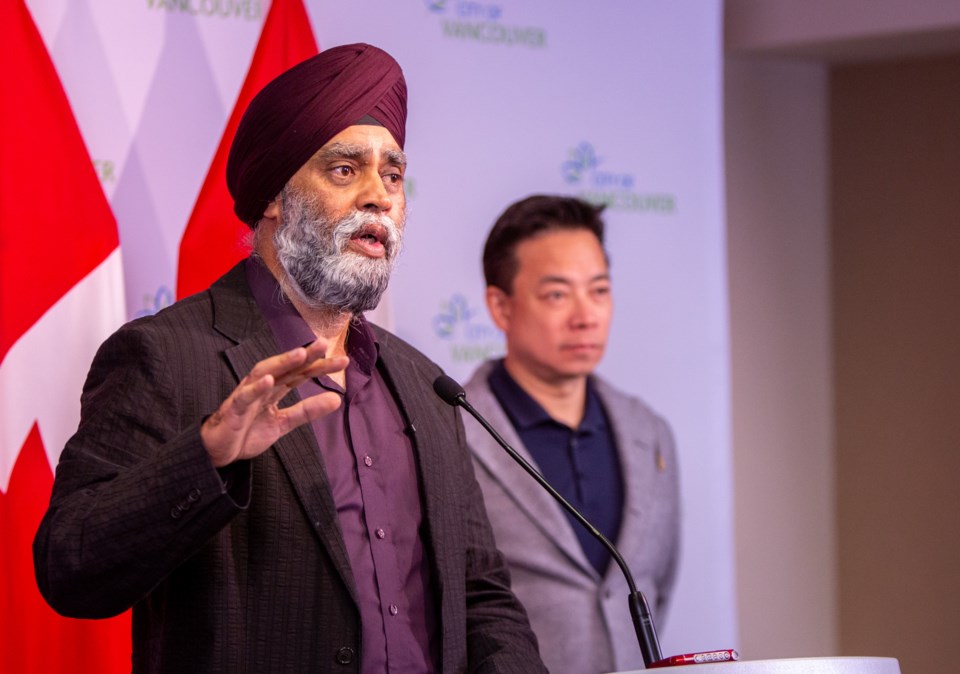Vancouver city council will decide in March how it will spend $2.7 million in federal government money aimed at preventing young people from getting involved in gang crime and violence.
The funds are part of a $4.3-million investment the government promised the city in 2022. The money is to be spent over four years and guided by the city’s youth safety and violence prevention strategy.
The city has already earmarked $1.6 million to launch an internal youth program committed to do community and public safety work. Some of that money will also be spent on initiatives related to mobilizing community and training, according to Lanny Libby, a city social planner.
“The recommendations that are going to be coming forward [to council] will focus on youth programs and programs for children in their middle years,” said Libby, noting details will be outlined in a report going to council March 12.
The money will not be going to police, as set out in the terms of reference for the money.
“We're not allowed to support law enforcement or policing core services,” she said. “So this is a separate stream where we're going to be supporting non-profit youth service organizations doing violence prevention work.”
Adriane Carr
Libby attended a news conference Thursday at city hall where Harjit Sajjan, the federal minister responsible for public safety, announced what was effectively a formal confirmation of the government’s $4.3-million investment.
The announcement was not news to Green Party Coun. Adriane Carr, who noted council approved the city’s youth safety and violence prevention strategy in November 2023. At the time, the city’s news release said the strategy was supported by a four-year $4.3-million investment via the federal government’s “Building Safer Communities Fund.”
Sajjan’s announcement had been postponed several times until he and Mayor Ken Sim spoke to reporters Thursday. Both shared stories about attending schools in Vancouver where gangs were present.
Sajjan, a former Vancouver police officer who served in the gang-crime unit, reflected on people he went to school with who ended up in jail or dead because of their involvement in gangs.
The $4.3 million, he said, is to help prevent young people from going down that path.
“This investment will help address the root causes of crime by supporting community-led projects for young people involved in gangs and who are at risk of joining them or being recruited,” said the minister, who is the member of Parliament for Vancouver-South.
Red Eagles, Lotus gangs
While the funds will not be used by the Vancouver Police Department, Sajjan said he is in “constant touch” with the department and will make sure “they get the tools that they need.”
“This is not about an ‘either, or,’ this is about focusing on what we as a community and municipality and as elected officials need to do to support the police in their work — because they have their hands full right now on the enforcement side,” the minister said.
“What we need to do is focus on the prevention side so that we can slow down the recruitment into those organizations.”
Sim, who is in his early 50s, mentioned the Red Eagles and Lotus gangs that were active when he attended high school. His experience was that members came from families of varied socio-economic status.
“A lot of the kids that ended up in the Red Eagles came from middle-class families, and they had everything lined up for them — and they still ended up there,” said the mayor, emphasizing the need for prevention programs.
'Severe lack of services'
Kathy Do, youth services coordinator for South Vancouver Neighbourhood House, described the federal investment as a “beacon of hope,” pointing out the need for more youth services.
Do referenced an equity report out of Simon Fraser University that concluded South Vancouver has less access to social amenities, services and programs compared to the city-wide average.
“There is a severe lack of services for children and high barriers that have increased in recent years for newcomers, immigrants and refugees to Canada,” she said.
The most recent Vancouver police statistics related to gun crime were released in November 2023, with 20 “shots fired” incidents between January and September, compared to 15 for the same period in 2022.
The same statistical report highlighted a concern over the number of incidents where youth used bear spray, with 127 recorded over the first nine months of 2023, up from 95 the previous year.
“There has been a 7.0% increase in youth-involved incidents whereby youth have been a victim of crime,” the report said. “There were 374 incidents whereby the victim was a youth in [the first nine months of] 2022 and this figure increased to 400 incidents [for same period in] 2023.”





